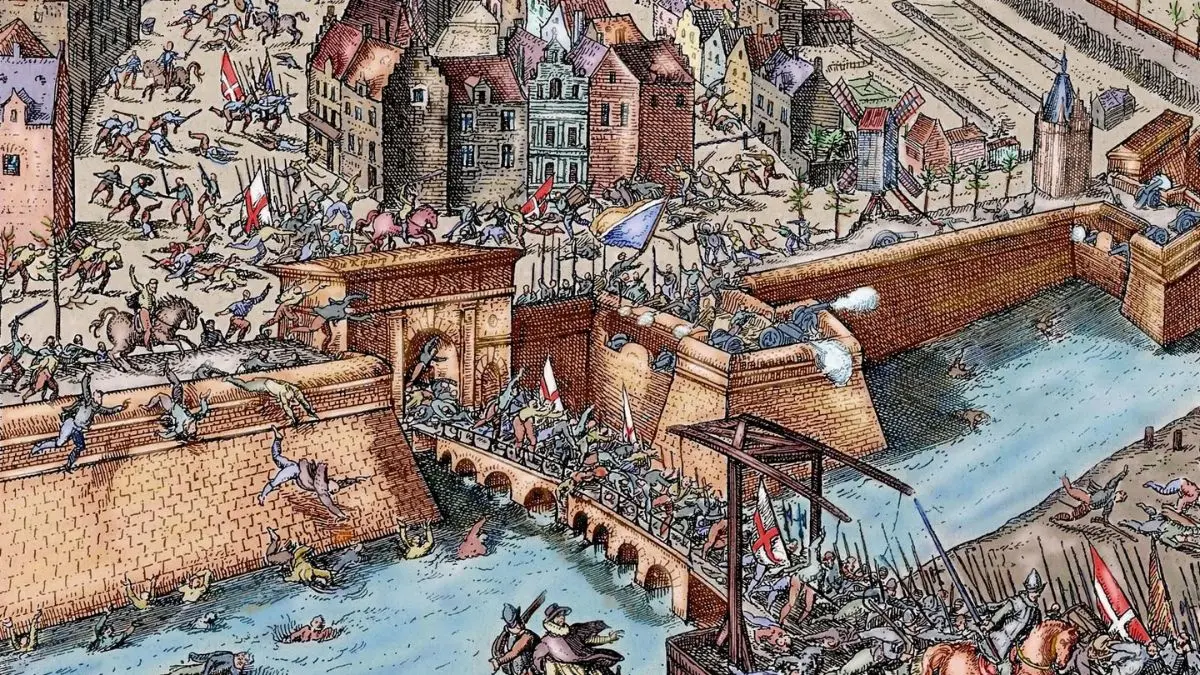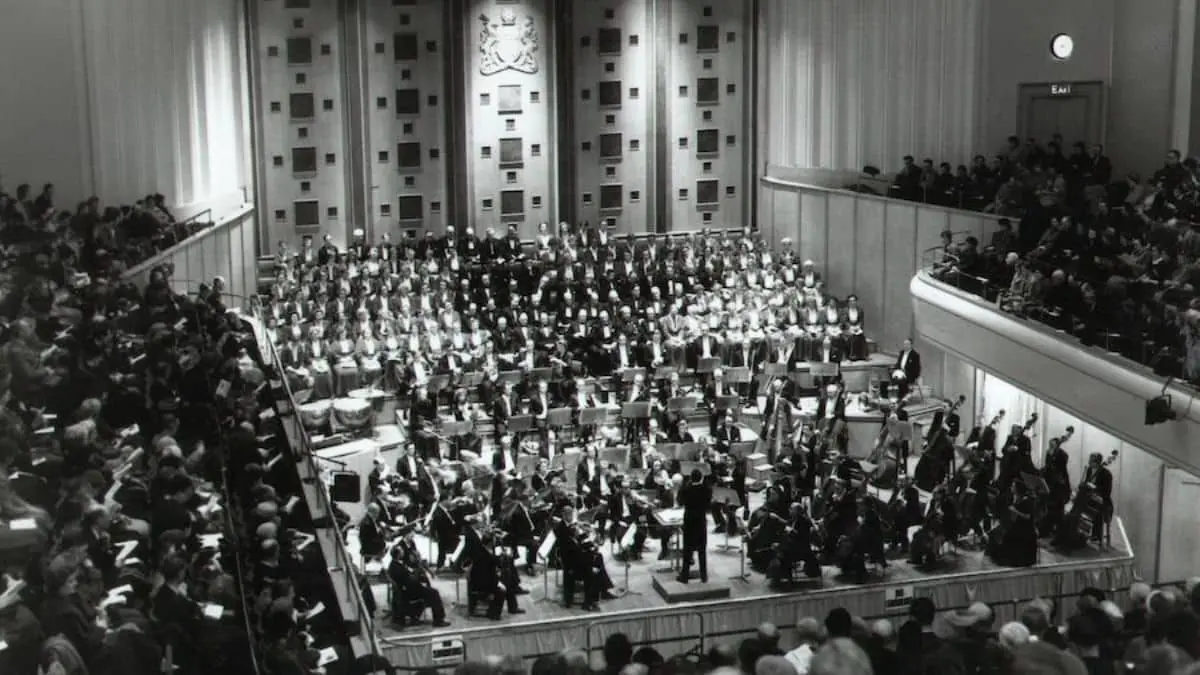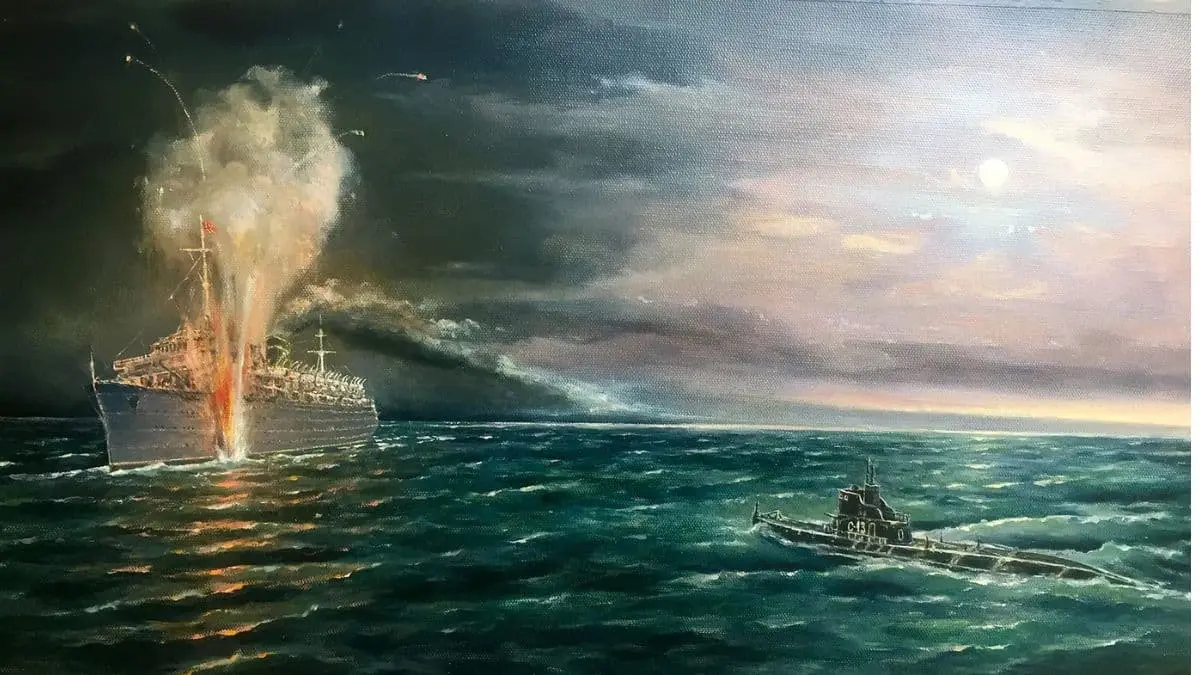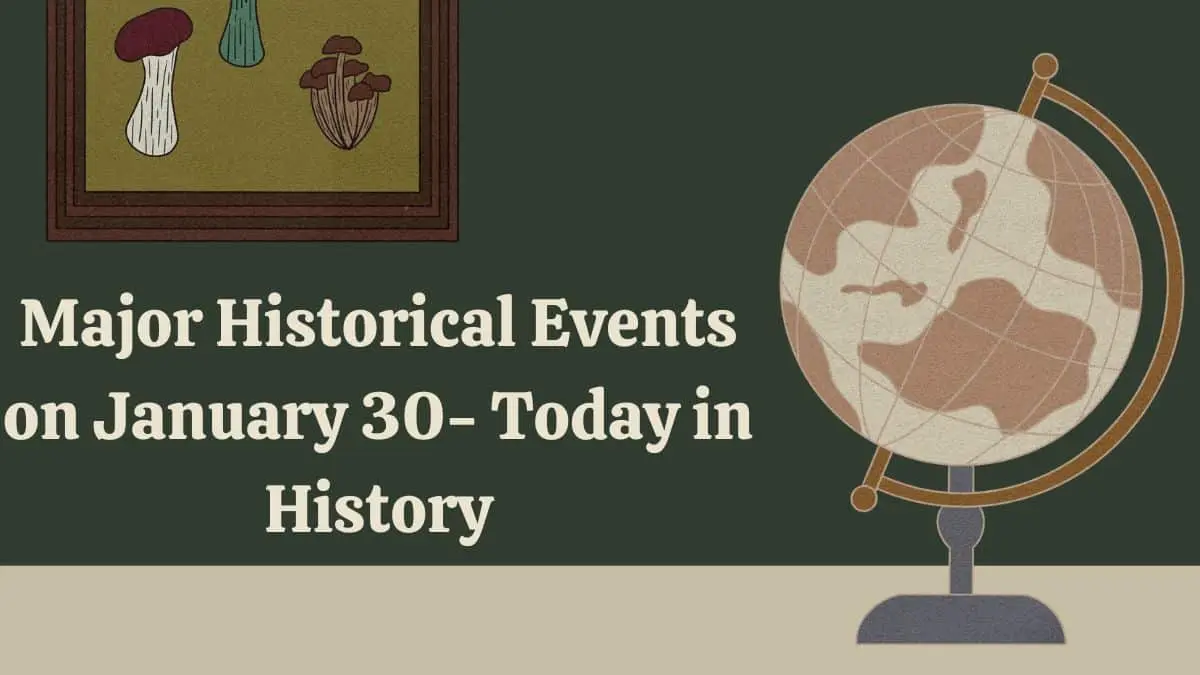January 30th stands as a pivotal date in history, marked by a wide array of significant events. From the conclusion of the Eighty Years’ War with the Treaty of Münster and Osnabrück in 1648 to the tragic assassination of Mahatma Gandhi in 1948, this day has witnessed moments of peace and tragedy. It also boasts technological advancements, such as the launch of the USS Monitor in 1862 and the patenting of the Rubik’s Cube in 1975. These events paint a rich and diverse tapestry of historical significance worth exploring. Here is list of all Major Historical Events of January 30.
Major Historical Events on January 30 – Today in History
1648: Eighty Years’ War Ends

The Treaty of Münster and Osnabrück, marking the end of the Eighty Years’ War, was signed, bringing peace between the Netherlands and Spain and significantly reshaping European politics.
1661: Cromwell’s Posthumous Execution
Oliver Cromwell, the Lord Protector of the Commonwealth of England, was posthumously executed. It symbolized a dramatic shift in English political history and reflecting the deep divisions of the era.
1820: Antarctica Discovered
Edward Bransfield sighted the Trinity Peninsula, claiming the discovery of Antarctica and opening a new chapter in the history of exploration and geographical discovery.
1826: Menai Suspension Bridge Opens
The Menai Suspension Bridge, a pioneering structure in bridge engineering, was opened, connecting the Isle of Anglesey to the north-west coast of Wales and heralding a new era in modern suspension bridge design.
1835: First Presidential Assassination Attempt
Richard Lawrence attempted to assassinate U.S. President Andrew Jackson, marking the first such attempt against a sitting U.S. president, reflecting the turbulent political climate of the time.
1858: First Hallé Concert

The first concert by The Hallé orchestra was held in Manchester, England, establishing it as a full-time, professional orchestra and enriching the cultural landscape of Britain.
1862: USS Monitor Launched
The USS Monitor, the first American ironclad warship, was launched, representing a significant technological advancement in naval warfare during the Civil War era.
1902: Anglo-Japanese Alliance Formed
The first Anglo-Japanese Alliance was signed in London, indicating a strategic shift in global alliances and marking a significant moment in Japanese foreign policy.
1911: First Airplane Rescue at Sea
The USS Terry performed the first airplane rescue at sea, saving Douglas McCurdy near Havana, Cuba, a groundbreaking event in the history of aviation and maritime rescue.
1930: Soviet Dekulakization Ordered
The Politburo of the Communist Party of the Soviet Union initiated a campaign of Dekulakization, leading to the confiscation of lands from the Kulaks, mass executions, and forced deportations, a tragic chapter in Soviet history.
1945: Wilhelm Gustloff Sinks

The Wilhelm Gustloff, carrying German refugees, was torpedoed by a Soviet submarine and sank in the Baltic Sea, resulting in one of the deadliest maritime disasters in history.
1948: Mahatma Gandhi Assassinated
Following Mahatma Gandhi’s assassination, Indian Prime Minister Jawaharlal Nehru’s poignant broadcast mourned the loss of a national leader, leading to the observance of Martyrs’ Day in India.
1962: Tanganyika Laughter Epidemic
A peculiar laughter epidemic began at a girls’ mission school in Kashasha, Tanganyika, quickly spreading to affect 14 schools and over 1000 people. This unusual event, characterized by uncontrollable laughter and various psychological symptoms.
1975: Rubik’s Cube Patented
Ernő Rubik applied for a patent for his “Magic Cube,” an invention that would later become globally known as the Rubik’s cube, revolutionizing puzzles and becoming a cultural icon.
1979: Varig Boeing 707 Disappears
A Varig Boeing 707-323C freighter, piloted by the same commander as Flight 820, mysteriously disappeared over the Pacific Ocean shortly after departing from Tokyo, adding to the annals of aviation mysteries.
1982: First PC Virus Created

Richard Skrenta created the first PC virus code, a significant yet dubious milestone in computer history. Named “Elk Cloner,” this 400-line program disguised as an Apple boot program showcased the vulnerabilities in early computer systems.
1989: US Embassy in Kabul Closes
The American embassy in Kabul, Afghanistan, was closed, signaling a significant moment in the complex political and military involvement of the United States in the region.
1994: Kapil Dev Cricket Milestone
Indian cricket legend Kapil Dev equaled Sir Richard Hadlee’s world record of 431 Test wickets, taking 2/41 against Sri Lanka in a match in Bengaluru, cementing his status as one of the game’s greats.
1994: Youngest Chess Grand Master
Péter Lékó became the youngest chess grand master at the time, a prodigious achievement highlighting his extraordinary talent and the growing prominence of youth in the chess world.
2013: South Korea’s Naro-1 Launch
South Korea successfully launched Naro-1, its first carrier rocket, marking a significant step in the nation’s space exploration efforts and technological advancement.
2019: Thwaites Glacier Cavity Found

Scientists uncovered a massive cavity under Thwaites Glacier in West Antarctica. This alarming discovery, measuring six miles long and 1,000 feet deep, raised concerns about potential sea-level rise.
2023: Peshawar Mosque Bombing
A devastating suicide bomb blast in Peshawar, Pakistan, at a mosque frequented by police officers, resulted in the tragic loss of at least 100 lives and left 157 injured, highlighting the ongoing challenges of regional security and terrorism.
2023: Russia’s “Big Revenge” in Ukraine
Ukrainian President Volodymyr Zelenskyy reported that Russia had intensified its military actions around Bakhmut in eastern Ukraine, marking an escalation after a period of relative stalemate.
Also Read: Major Historical Events on January 29 – Today in History



